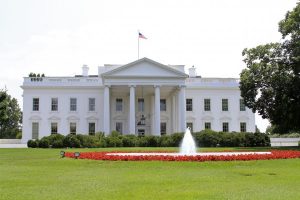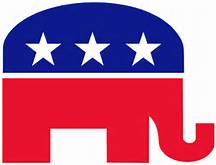Our Head of State – our President – differs in several ways from that of many of our sister nations. Advanced democracies like the United Kingdom, Japan, Sweden and Canada have a constitutional monarchy where political power is shared between a king or queen (usually) and a parliament or similar body. In the Republic of France, a president and prime minister share executive powers. Parliamentary republics, such as Ireland, Germany, India, and Italy, have mostly ceremonial presidents as the heads of state, and the leaders of their governments are usually from the legislature. In the United States, our President functions as both the chief ceremonial leader and the head of the executive branch of our government. 
As we decide, first in the primaries then in the 2020 general election, which candidate should get our votes, it might be helpful to consider some questions under both functions that our Chief Executive exercises.
Ceremonial Role
- Which candidate is the most “presidential” when it comes to character?
- Who can you best picture meeting with heads of states of our traditional allies?
- Which candidate do you feel would command the most respect of our allies?
- Who can you best picture dealing with heads of states of our traditional adversaries?
- Which candidate do you most like to listen to when presenting honors to living persons, honoring the deceased and comforting loved ones after tragedies, dealing with children and other vulnerable citizens, or giving speeches on national holidays?
- Which candidate inspires you to do your best for your community and country?
- Which candidate is the best role model for children?
Political Leadership
- Which candidate best represents your personal and communal values?
- Which candidate has shown the most consistency in upholding those values throughout his/her life and career?
- Which candidate is surrounded by the best, most ethical and most competent advisors, colleagues and staff?
- Which candidate demonstrates the most courage in his/her personal and political life? How has s/he gone about making difficult decisions that affect other people’s lives?
- Which candidate has the personal life that you most respect?
- Which candidate has the most experience with executive responsibilities?
- Which candidate has the most experience working collaboratively with many constituencies (i.e., “across the aisle”)?
- Which candidate has the most or best experience with foreign policy and/or military issues?
- Which candidate has shown personal and political growth over the course of his/her life?
- Which candidate will get the most done if elected President?
 It must be acknowledged, always, that no candidate will be perfect. No candidate will possess all the qualifications that we might want.
It must be acknowledged, always, that no candidate will be perfect. No candidate will possess all the qualifications that we might want.
However, we know from the 2016 election, that not voting has potentially grave consequences. Sometimes it is necessary for a citizen to vote against someone we feel could lead us down a dangerous, tragic path, if we don’t feel there is someone we might truly want as our national leader.
Even when we do vote for President in the general election, we in the US are up against a challenge that is not shared by any of our peer nations, that is, the Electoral College. This compromise from the late 18th century makes it all the more imperative that Americans vote; Donald Trump won the Presidency with fewer than 80,000 votes spread over three states because of the Electoral College (Hillary Clinton won almost three million more votes than Trump did nationwide). In the opinion of many of us, we must do away with the Electoral College once and for all and as soon as possible to ensure that the candidate that wins the majority of votes wins the highest office in the land.
 Finally, we must also ensure that legitimate votes are not suppressed. The 1965 Voting Rights Act was greatly defanged in 2013 when a significant provision of the Act was overturned by the Supreme Court in a 5-4 decision; the move allowed nine states, primarily in the South, to change their election laws without advance federal approval. This has led to a burgeoning of laws throughout the country that threaten to suppress the vote, especially the vote of African Americans. (These laws have largely been promoted by Republican legislators.)
Finally, we must also ensure that legitimate votes are not suppressed. The 1965 Voting Rights Act was greatly defanged in 2013 when a significant provision of the Act was overturned by the Supreme Court in a 5-4 decision; the move allowed nine states, primarily in the South, to change their election laws without advance federal approval. This has led to a burgeoning of laws throughout the country that threaten to suppress the vote, especially the vote of African Americans. (These laws have largely been promoted by Republican legislators.)
What kind of national leader do we want going forward? What kind of country do we want? In this, a democratic republic that we love, we all have the responsibility to make these decisions.
We should all be registered to vote and should support efforts to ensure that we all can vote. And we should all vote in our elections.
